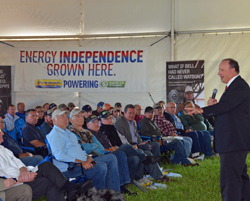 A new internal report recommends the Environmental Protection Agency improve its monitoring of the Renewable Fuel Standard (RFS) program. This article in Biodiesel Magazine reports the EPA’s own Inspector General conducted the audit and made the recommendation in response to the generation of millions of dollars of fraudulent renewable identification numbers (RINs).
A new internal report recommends the Environmental Protection Agency improve its monitoring of the Renewable Fuel Standard (RFS) program. This article in Biodiesel Magazine reports the EPA’s own Inspector General conducted the audit and made the recommendation in response to the generation of millions of dollars of fraudulent renewable identification numbers (RINs).
According to the report, the EPA did not track submission of third-party engineering reviews or annual attest engagements because it does not have an electronic monitoring system for those reports. Until these materials are tracked, the Office of the Inspector General said the agency can’t be sure that program participants are complying with regulations. However the EPA recently implemented electronic reporting requirements for attest engagements and said it intends to do the same for engineering reviews by the end of the year.
The report also notes the investigation was unable to determine if there is overlap in parties completing the third-party engineering reviews and attest engagements. In addition, it specifies that regulations currently do not preclude the same third party from completing multiple requirements and other reporting responsibilities, allowing for potential overlap. This could result in a conflict of interest if the same third party reviews its own work.
The IG recommended that the agency modify existing reporting systems, as well as electronic submission of all reporting requirements for the RFS, including third-party engineering reviews and attest engagements. The EPA says it agrees and is already addressing these issues.










